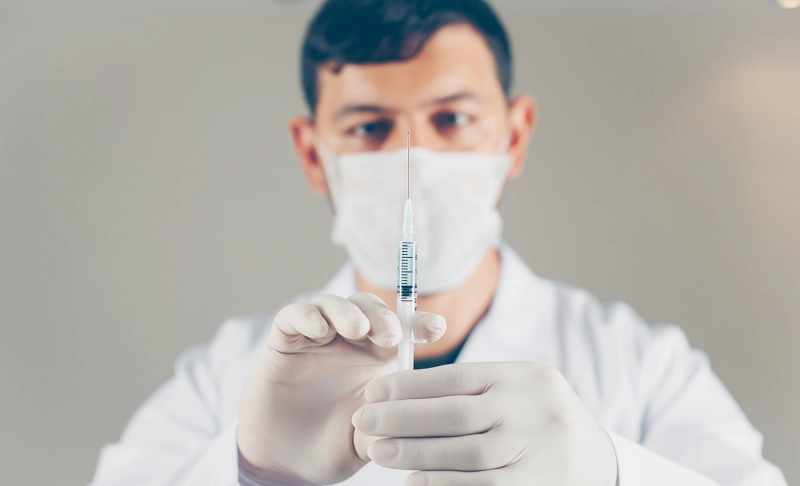By: Nikita Kochhar
January 20 2022

COVID-19 vaccines protect people from severe illness and hospitalization. They are safe and effective against different variants.
Christian Perronne is a controversial doctor who is much appreciated in conspiracy theory circles for his criticism of health policy in the fight against COVID-19. On August 17, 2021, America's Frontline Doctors, a website that promotes pseudoscience and COVID-19 misinformation, alleged that it is vaccinated people who are dangerous to society and not the unvaccinated. This claim originated from a video where Perronne says, "severe cares in the hospitals are among vaccinated people," adding that "vaccinated people are at risk of the new variants and should be isolated from the society." According to the Centers for Disease Control and Prevention (CDC), the COVID-19 vaccines are not experimental and were developed using science that has been around for decades. The vaccines went through all the required stages of clinical trials. Also, extensive testing and monitoring have shown that these vaccines are safe and effective, and the vaccines still undergo intensive safety monitoring. COVID-19 vaccines protect us from becoming severely ill. They also protect people around us, especially those at risk of severe illness like older adults, people with medical conditions, and pregnant people. A CDC report shows that since July 26, there have been only 6,587 reports of breakthrough infections that resulted in hospitalization or death among 163 million fully vaccinated people. According to the World Health Organization, a growing body of data suggests that "most vaccines stimulate enough immunity to retain substantial efficacy against most variants, especially for severe disease, hospitalization, and death." WHO also says that the immunity built through vaccines protects people around us from getting infected. If we are jabbed, we are less likely to infect others. In terms of viral load, several studies have provided conflicting conclusions, and they have not been peer-reviewed. According to a preliminary study that was posted on August 24, 2021, "SARS-CoV-2 Delta variant might cause high viral loads, is highly transmissible and contains mutations that confer partial immune escape." Another preliminary study conducted in the U.K. states that "With Delta, infections occurring following two vaccinations had similar peak viral burden to those in unvaccinated individuals." However, a preliminary study posted on September 2, 2021, which examined "how vaccine breakthrough infections compare with infections in immunologically naive individuals," found that "vaccination shortens the duration of time of high transmission potential, minimizes symptom duration, and may restrict tissue dissemination." Even though the studies have not been peer-reviewed, they indicate that even though the viral load might be similar between vaccinated and unvaccinated individuals, the rate of transmission among vaccinated is still lower. Additionally, it is important to bear in mind that if vaccinated, chances of hospitalization or severe illness after being infected are much lower. Data so far suggests efficacy rates of approximately 67 percent for the J&J vaccine, 66 to 95 percent for the Moderna vaccine, and 42 to 96 percent for the Pfizer-BioNTech vaccine against the Delta variant. On the other hand, unvaccinated people are at a higher risk of hospitalization or death from COVID-19. UPDATE: We have added information from three preliminary studies about the Delta variant and vaccines. However, these have not yet been peer-reviewed, and the information does not change our judgment. The COVID-19 pandemic has given rise to a lot of potentially dangerous misinformation. For reliable advice on COVID-19, including symptoms, prevention, and available treatment, please refer to the World Health Organization or your national healthcare authority.